
We are a global maritime risk management expert.
Our intelligence-led, operationally focused solutions, provide efficiency, protection and performance.





We are a global maritime risk management expert.
Our intelligence-led, operationally focused solutions, provide efficiency, protection and performance.



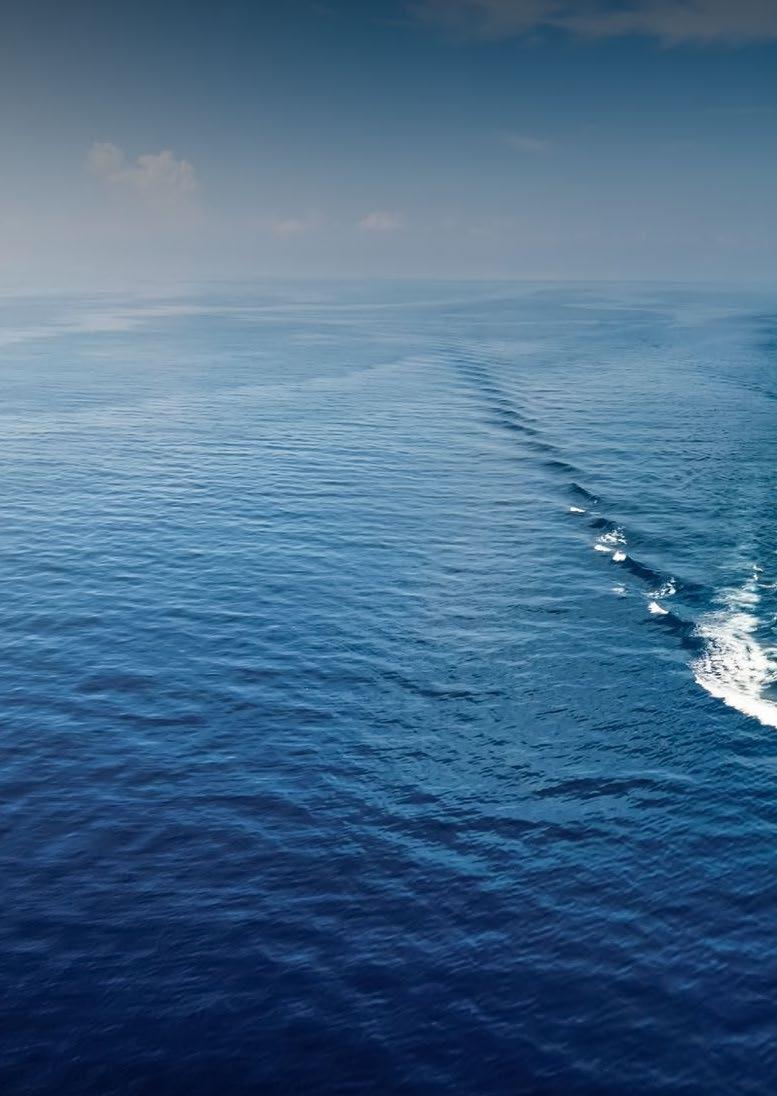
In an era marked by unprecedented geopolitical instability and global maritime threats, effective risk management and intelligence are crucial for the maritime industry. Joshua Hutchinson, Managing Director of Intelligence and Risk at Ambrey, brings a wealth of experience and strategic vision to this vital role. With a background that spans from serving as a Royal Marine Commando to leading intelligence operations, Hutchinson provides invaluable insights into the evolving landscape of maritime security. In this interview, he discusses Ambrey’s approach to tackling the most pressing security challenges, the impact of technological advancements, and his personal leadership philosophy that guides the company’s mission to ensure safety and security at sea.
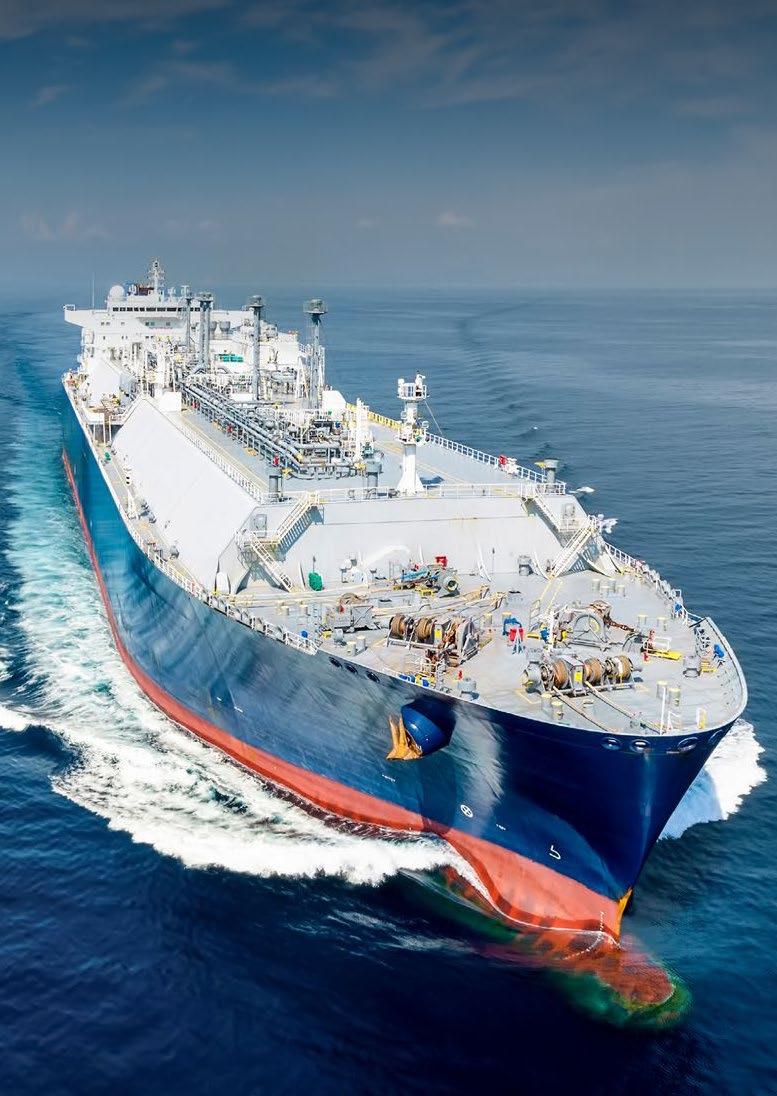

Can you describe your journey from a Royal Marine commando to leading intelligence and risk management in the maritime industry?
I have been very fortunate to have a broad experience during my professional career, which started with being pushed to take early leadership positions in the Royal Marines. Following a few arduous operational tours, I was looking for a different challenge and went on a journey from founding companies that developed maritime risk products to owning and operating vessels that functioned in high-risk areas. Now, I am helping clients understand global threats and the best practice measures to mitigate their risks. After a decade of working in the industry, and with a passion for problemsolving, intelligence and risk management is a natural place for me.
What are the most pressing security challenges facing the maritime sector today, and how is Ambrey addressing these challenges?
In modern times, we have not seen the amount of geopolitical instability and global threats outside of a world war. I cannot answer this question without mentioning the events that have taken place in the Red Sea and the Indian Ocean with the newly evolved threat from the Houthis and the return of Somali piracy. The industry finds itself at a turning point. Over the last 10 years, there had been a regional decline in events taking place in the Indian Ocean, and the High-Risk Area was removed at the request of the shipping industry in January 2023. However, in November 2023, the Houthis started their attacks on shipping in the Red Sea, and Somali piracy re-emerged around the same time. This has reset the threat landscape for that entire region.
Additionally, we have seen hundreds of vessels stranded in port following the breakout of war in Ukraine, triggering huge losses in the hull market. Commercial vessels have subsequently had to navigate the unilateral Ukrainian grain corridor to keep cargoes moving at significant risk. The need for precise, real-time maritime domain awareness has never been greater; many of the war risk incidents we have seen are avoidable.
Our daily challenge is to raise awareness across the shipping industry and ensure that everyone understands the threats relevant to their crew, their vessel, and their operation each and every day. A huge part of this is also building resilience through our Loss Prevention team. They promote Best Management Practice and conduct quality control and assurance for owners and insurers, encouraging preparedness to breach War Risk areas.
“No day istheeversame.”
As the Managing Director of Intelligence and Risk, what are your main responsibilities at Ambrey?
I lead the strategic direction and services that we provide through our intelligence and risk business units. This encompasses a broad range of activities, from maintaining an understanding of emerging and current global threats to the collection, analysis, and dissemination of intelligence related to geopolitical, security, and operational maritime threats. Additionally, I support our Loss Prevention team and coordinate potential responses to critical incidents and crises affecting our clients or Ambrey operations.


How has technological advancement shaped the approach to risk assessment and security in maritime operations at Ambrey?
Technology is increasing both in capability and affordability, and the maritime industry is being pushed every day to adapt. Greater connectivity has enabled us to provide more information to crews, allowing them to act dynamically as threats evolve. This has literally changed the game.
The availability and affordability of information about vessels and their operations have improved significantly. The Automatic Identification System (AIS) has been a significant advancement over the last decade, helping us understand vessel locations and operations at the touch of a button. However, AIS is a double-edged sword; while it provides valuable information, it also means that everyone, including potential adversaries, can track vessel locations. This increased visibility has led to information breaches, more vessels adopting “dark” operations, and unfortunately, the misuse of AIS data to target vessels accurately with ballistic weapons and Unmanned Aerial Vehicles (UAVs).
UAVs, once considered high-tech equipment, are now low-cost disposable commodities that can be used as weapons. The rapid pace of technological development in this area means that our ability to combat such threats at sea has not yet caught up.
While the future is not here yet, we do hold extremely powerful computers in our hands. I believe we are transitioning into a world where predictive learning and technology will enable us to make safer and more secure decisions each day. Global trade will continue to grow, and we must provide the tools and services to ensure that while the industry continues to evolve, it does so with the seafarer’s welfare at the heart of its development.
What strategic initiatives have you implemented at Ambrey to enhance maritime security services?
In an age of information overload, and in an industry that never stands still or sleeps, we believe in getting relevant information to the people who need it, as quickly as possible, to save lives, time, and money. Our vision is to provide the best commercially available real-time maritime domain awareness and intelligence globally.
Our mission is to ensure that our clients, the Company Security Officers, and Masters are given the information, intelligence, and advice they need when they need it to achieve ‘net zero’: zero losses from preventable security incidents. The commercial value this adds to the owner, operator, and insurer is self-evident.
For the seafarer, we aim to be their ever-present and reliable support wherever they may be. We can’t always do this by ourselves, so we believe in the power of partnerships. Working together across the industry ensures that any operation on our oceans is prepared and executed as securely and safely as possible.

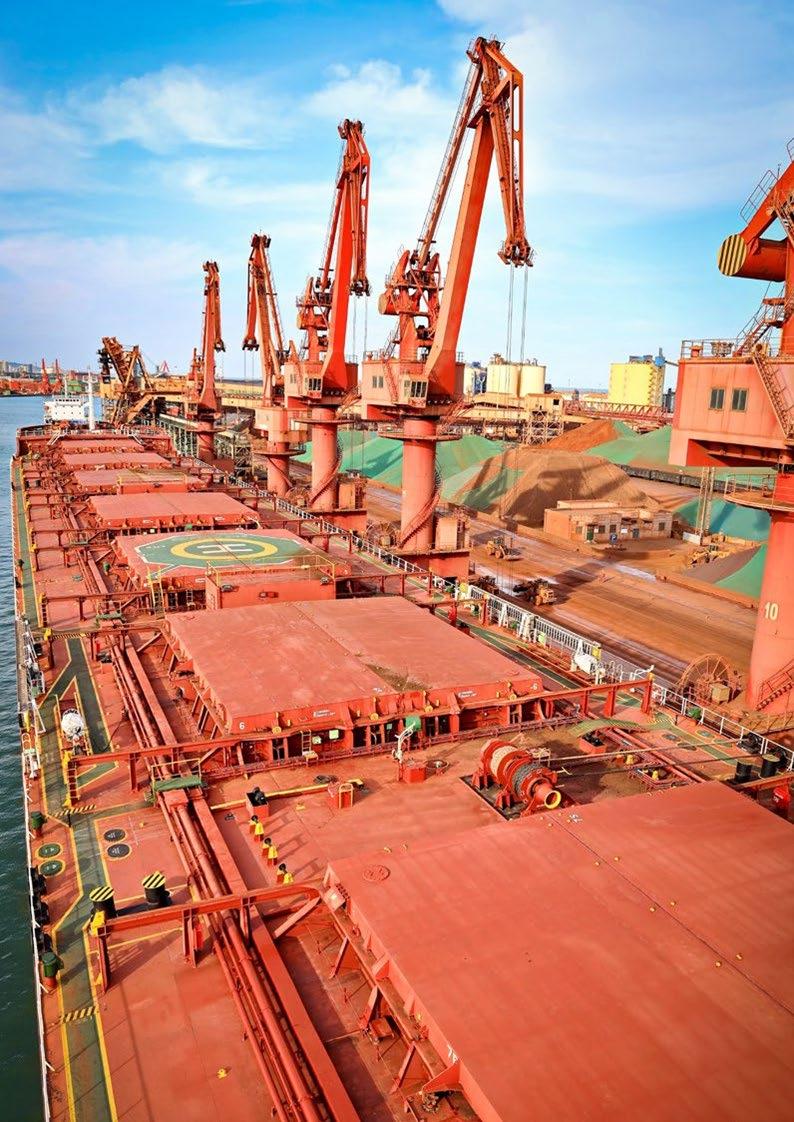

How does Ambrey build and maintain trust with its clients in the highly sensitive area of maritime security?
We support our clients through some of their most challenging and difficult times. This level of support during an incident or a crisis inevitably builds trust through shared experience. Ultimately, trust is built over many years and can be lost in moments, so we always focus on upholding our key business values of reliability, morality, and teamwork, as well as demonstrating humility in our actions.
We aim to build relationships that last decades, and we have many clients who have been with us for that long. Therefore, we always act with a long-term perspective beyond any immediate commercial or operational issue for a particular voyage.
“We treat our clients as we would hope to be treated.”

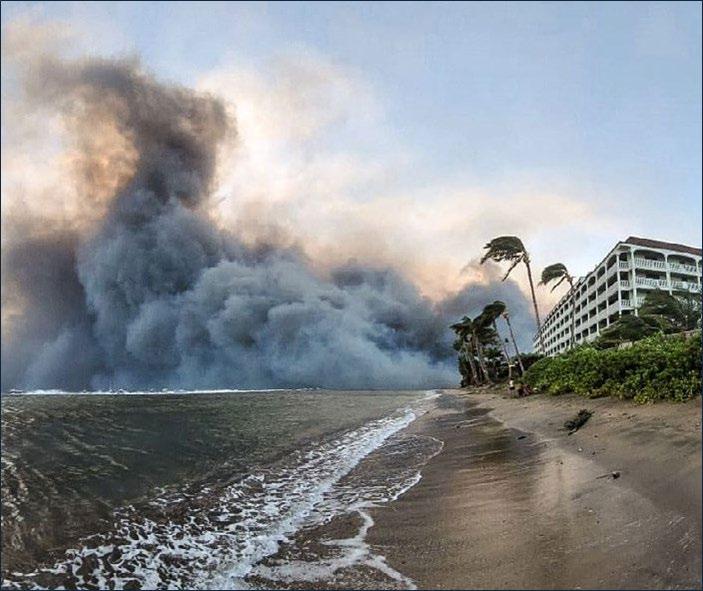
What are some of the career highlights or most memorable moments you’ve experienced in your role at Ambrey?
In my relatively short time at Ambrey, I have been involved in some amazing operations, from rerouting vessels around missile attacks, to helping a liner remove narcotic incidents during their operations in Latin America, and many more complex, lifesaving, and life-changing operations.
One standout event was how an incredibly passionate and focused team was able to support the evacuation of families in Hawaii from the beaches following the outbreak of fires on the island of Maui. The speed with which everyone worked, from the other side of the world, over several nights alongside the United States Coast Guard, was incredible. Several sleepless nights later, we were sent a photo from one of the families, a group of seven, including women and children. They will never know who we are or what we did, and that doesn’t matter. The sense of achievement and purpose is something you cannot forget.
A trusted partner for your most critical maritime endeavours
Visit spire.com/maritime


Spire Maritime stands as the trusted partner in maritime AIS vessel tracking data, offering unparalleled coverage and precision. With the world’s largest constellation of multipurpose satellites, Spire detects over 600,000 vessels and 250,000 active vessels per day. This capability allows us to deliver both real-time and historical data, with archives dating back to 2010. Such comprehensive data is crucial for a wide range of applications, including but not limited to enhancing situational awareness, optimizing maritime routes, ensuring compliance, supporting environmental monitoring, and detecting vessel spoofing.
Our data solutions are designed to meet the needs of a diverse range of stakeholders in the maritime space, from maritime Application Service Providers, shipping companies and port authorities to logistics providers, environmental agencies, insurance companies, and defense authorities. Our AIS data can also be used for advanced analytics and to feed machine learning models, transforming vessel tracking data into actionable insights. This is particularly valuable for market analytics and commodity intelligence, improving operational efficiency, voyage optimisation and safety at sea, and minimizing the environmental impact of maritime activities.
Integration with our data services is seamless, thanks to our developer-friendly APIs and robust customer support. Our commitment to reliability and accuracy ensures that clients receive the highest quality data, tailored to their specific needs. Whether it’s for real-time tracking, predictive analytics, or historical data analysis, Spire Maritime is equipped to provide solutions that drive success.
We’re here to help! For more details, get in touch with us or visit spire.com/maritime
What trends do you foresee impacting maritime security in the next five to ten years?
The global tensions we see today aren’t going away any time soon. The forces of geopolitics, poverty, finite natural resources, and the pressures of global trade will continue to influence tensions, terrorism, and civil unrest. Therefore, unfortunately, the pressure on the maritime industry will continue. We will remain in the crosshairs of these tensions and threats across migration, activism, crime, war, and narcotics.
All eyes are on the instability in Latin America, from Ecuador’s struggles to Venezuela’s claims on natural resources across the border. On the other side of the world, the tensions between China and Taiwan are predicted to come to the forefront soon, which will see international sanctions and pressure on industries like never before.
While the industry may sometimes react slowly, we need to remain agile and collaborate to achieve positive outcomes.
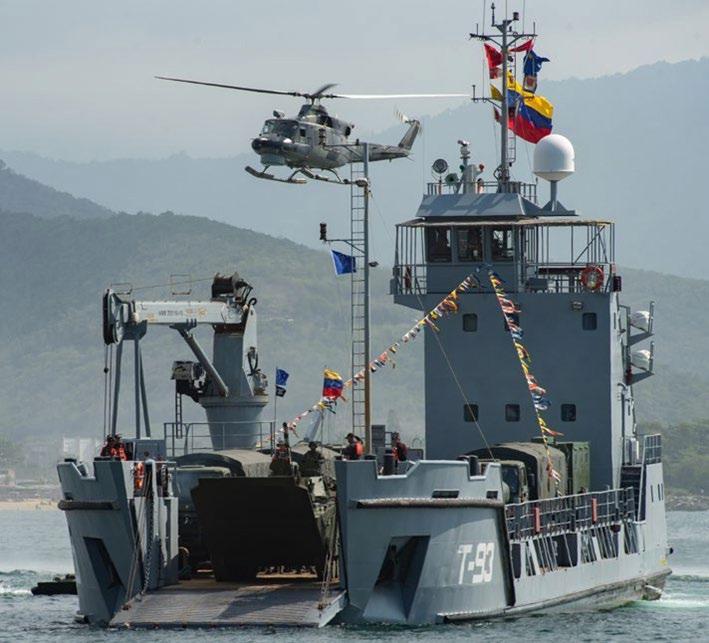
What advice would you give to professionals looking to enter the maritime security field?
The maritime industry is so vast that it doesn’t matter if you are a seafarer or not. From shipbuilding to technology development and equipment that assists the maritime industry; to the insurers, reinsurers, recruiters, cadets, ship managers, and everyone else. The industry is your oyster.
To offer a perspective, one of my friends was involved in building the gas pipe system for an FPSO project that was being built in South Korea. Their work concluded three years before mine, and we were appointed to provide a vessel ship security plan and implement all the security equipment just before it set sail to Africa. I can only imagine the hundreds of thousands of other people involved in the delivery of that one vessel.
Maritime security plays a crucial role in making sure that millions of seafarers and trillions of dollars’ worth of assets and cargo stay safe every single day. It’s extremely rewarding but also very challenging, and not a decision I would expect anyone to take lightly.
How has your experience influenced your leadership philosophy at Ambrey?
I have been surrounded by some incredible leaders over my career and some very bad ones as well. As a leader, if you want to keep learning, then surround yourself with people that are smarter and more experienced than you.
Lead by example. Learn from your failures. No one is perfect, but the best people are the ones that turn up each day and aim to be a better person than they were yesterday.
I believe that Ambrey has the vision and ambition to do great things and it’s fantastic to be a part of that.


Joshua Hutchinson Managing Director - Intelligence and Risk
Ambrey provides maritime security, crisis response, and risk management services, specialising in safeguarding global maritime operations and offering comprehensive solutions for the shipping, offshore, and oil and gas industries.
